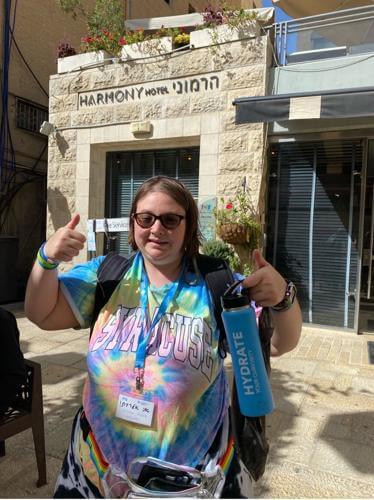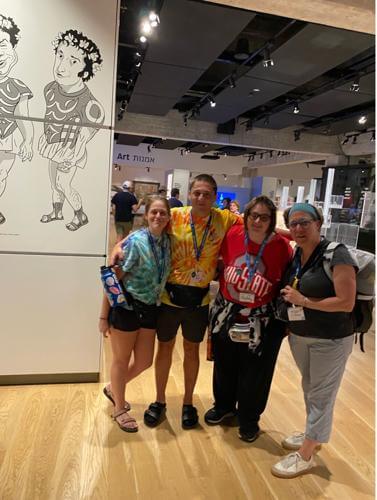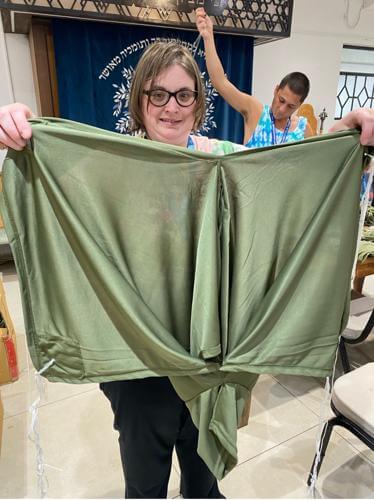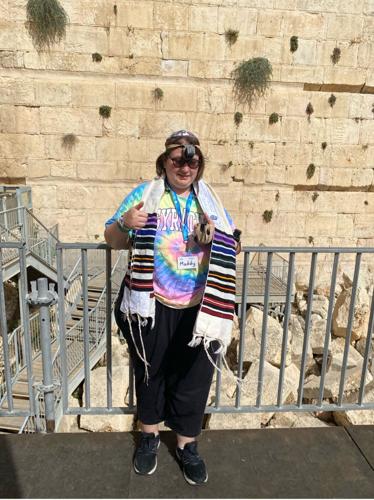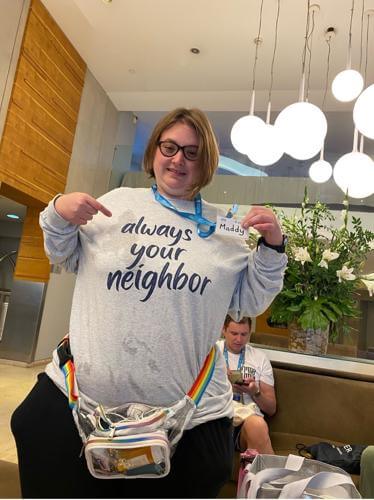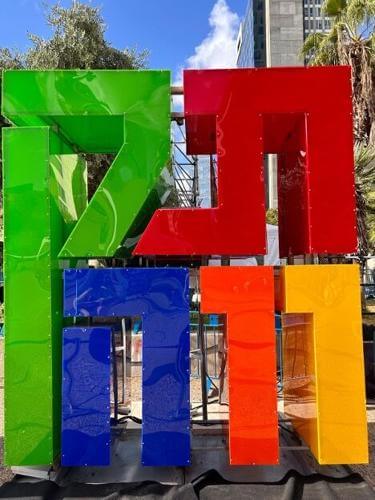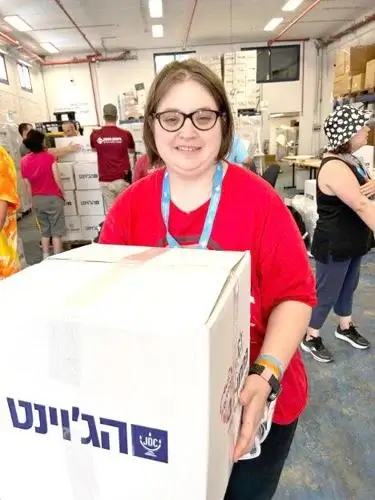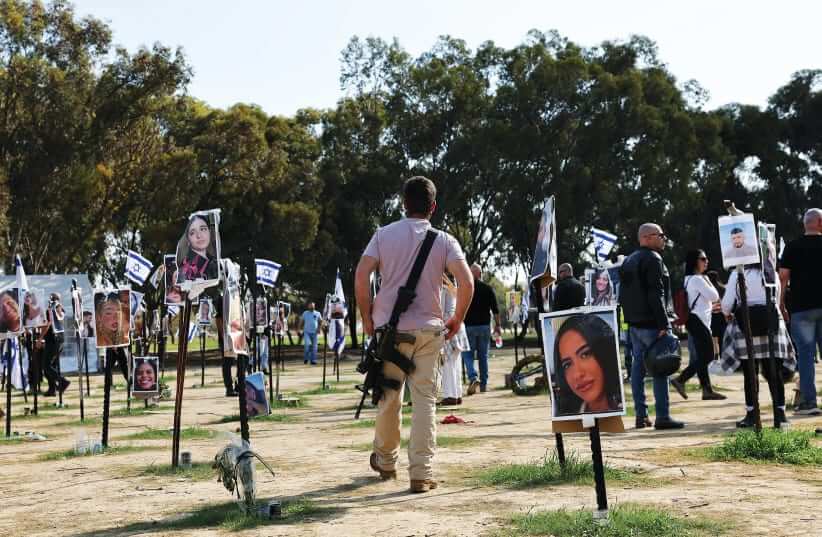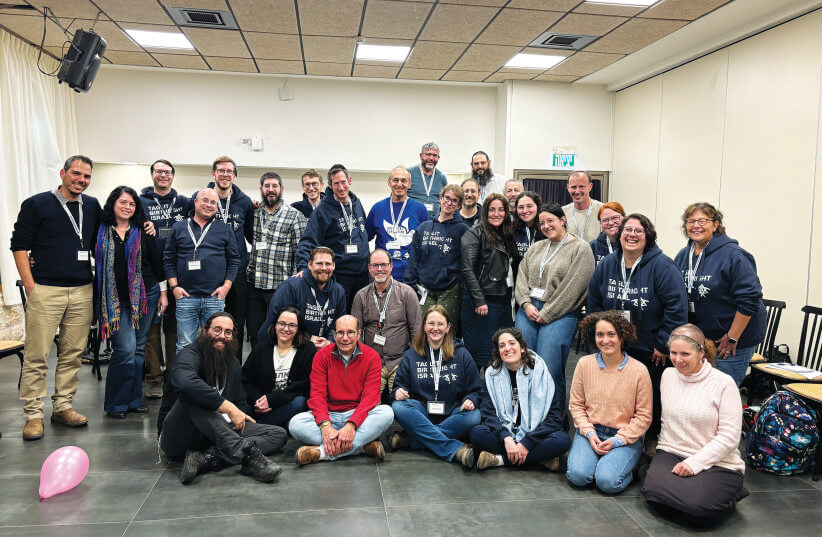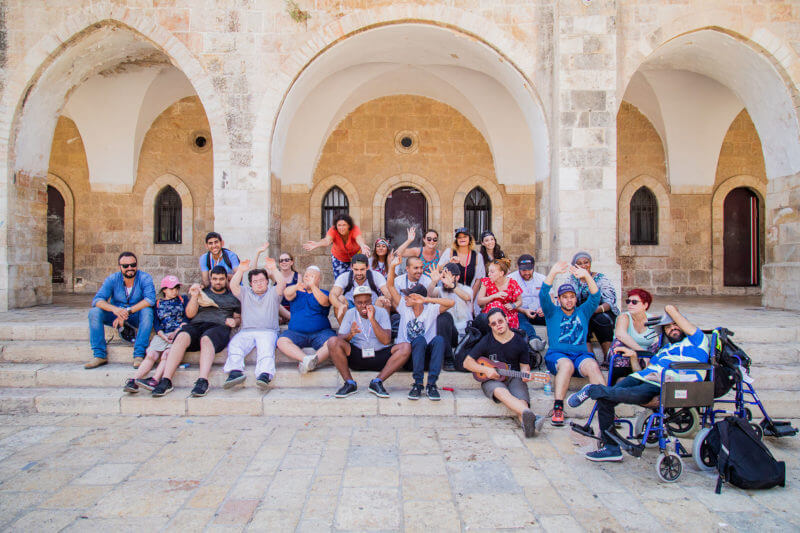The Original Article is Published at JPost.com
DIASPORA AFFAIRS: How to present the much-changed nation to the thousands of Birthright visitors.
I recently had the privilege of participating in the pilot cohort of Birthright Israel’s latest staff training initiative, the Educators Forum, in Israel.
The goal of the program was to bring together an experienced group of Jewish professionals – US and Canadian staff members and Israeli tour educators – so that together we could bear witness to the events that took place on October 7, recognize the new realities that have resulted in Israel in the aftermath of those events, and learn from and with one another to better understanding what is facing the Jewish people – both in Israel and in the Diaspora.
The hope in coming together was to begin creating a shared language that could be taught to all future Birthright Israel trip leaders, especially those who will be leading trips in summer 2024.
Birthright arrives in Israel to a new reality
Upon arrival at Ben-Gurion Airport, our traveling group of 20 North Americans, along with five Israelis – who, combined, had staffed more than 200 Birthright Israel trips and positively affected the Jewish journeys of nearly 8,000 participants – were met by members of the educational teams of Birthright Israel, the Taglit Institute for Tour Educators, and M²: The Institute for Experiential Jewish Education, who would be our guides, teachers, facilitators, and co-partners in the weeklong experience.
PARTICIPANTS IN the Birthright Israel group leaders’ trip. (credit: Courtesy Birthright Israel)
The journey was moving, meaningful, and successful from both professional and personal standpoints. Let me begin with the personal.
I cried three times on Friday, the next to last day of our trip.The first time was at Mount Herzl, when our group paid a morning visit to the freshly dug graves of soldiers killed in Gaza.
The second time – out of pride and joy – was Friday night at the Dan Panorama Hotel in Jerusalem. Our group, which included 10 rabbis of all denominations, backgrounds, and genders (e.g., Chabad, Orthodox, Reform, Conservative, and Reconstructionist), created a holy space as we welcomed Shabbat together with prayer explanations, songs, and personal stories. How extraordinary that such a diverse group can come together so comfortably to create a community of unity and respect within the framework of Birthright Israel!
After our group Kabbalat Shabbat experience, about a dozen of us joined nearly 100 worshipers at the hotel’s Kabbalat Shabbat and Maariv service. Most were Yemenite refugees from Yachini (near Sderot), and have been living in the hotel for the past three months. The Ashkenazi rabbi, wearing a black hat and coat, with a full beard, respectfully announced in Hebrew and English that prayers would include the traditions and prayer customs of both Ashkenazim and Sephardim, and that, following the Ashkenazi-led Kabbalat Shabbat service, we would be singing “Bar Yochai,” a song sung by many Yemenite Jews, followed by Maariv in the Sephardi tradition.
My final tears came as my group came back together in a sharing circle after dinner to celebrate an Oneg Shabbat. Michael, one of the tour educators, shared the haunting story of his son who was serving in Gaza and, during a recent battle, sadly lost a friend and fellow soldier, and who himself was wounded and put into an induced coma.
Fortunately, his son is recovering, but Michael related to us the difficult conversation he and his wife, and daughter-in-law, had to have in deciding who among them would tell his son about his friend’s death, once he awakened in his hospital bed.
This story was just another example of the complexities and realities of the war and its impact on Israelis and Israeli society.
What an intense, emotional, inspiring week it was for our group. Among us were executive and assistant executive directors of Hillels and Chabads on campus, campus rabbis, Israel program coordinators, Federation professionals, and a handful of others working for various Israel and Jewish educational organizations. We arrived together as individuals with our hopes and expectations for what we would encounter, and we left the program with the feeling, trust, and connection of a family, determined to recruit and bring Birthright Israel participants to Israel in the very near future.
Together, we visited the site of the Supernova music festival, and Kibbutz Aza, where we came face-to-face with the destruction and murder that took place there. We visited Sderot in the pouring rain and looked at an empty plot of land where the local police station once stood. It had been overrun by Hamas and was promptly blown up by the IDF after learning that the Israeli civilians inside had sadly been killed. The IDF acted quickly so the terrorists could not escape.
Later in the week, we visited Hostages Square in Tel Aviv, where we spoke to family members and friends of those still being held hostage. Seeing and hearing these stories of tragedy and loss was extremely difficult and emotionally draining.
We also experienced the incredible sense of hope, resilience, and unity that has taken root and flourished in the country. We met with Adir Schwartz, 29, one of the leaders of the Jerusalem Civilian Command Center in Jerusalem, which, only hours after learning about what was happening in the southern communities bordering Gaza, began coordinating efforts to do whatever was necessary to help fellow citizens – whether it was collecting and distributing food, finding clothes or apartments for evacuees, supporting soldiers with needed equipment, and so on. To date, the center has spent NIS 10 million to help Israelis in need, and will continue until it is no longer needed.
In many ways, everyday life in Israel has returned to normal. The shuks are full, the streets and roads are flooded with foot and vehicular traffic, and groups and individuals are visiting the country. Our El Al flight and the one that departed two hours before ours were overbooked.
And Birthright Israel participants are already on the ground! They include Birthright Israel Onward participants, who have been traveling to Israel since early November for one- to two-week volunteer programs, as well as participants in classic 10-day Birthright Israel trips. Registration is currently open for summer 2024 trips, which are to bring thousands of participants from around the world to Israel.
THROUGHOUT OUR week in Israel, we were inspired by our group leaders and the Birthright Israel staff. Gidi Mark, international CEO of Taglit Birthright Israel, said to us: “In light of recent events… we must come together to ensure that we are providing the support, knowledge, and perspectives that our participants need, now more than ever, to continue to thrive and develop their Jewish identity.”
Dr. Zohar Raviv, international VP of educational strategy for Birthright Israel, described our group as a “traveling think tank in Israel” charged with helping outline Birthright Israel’s educational philosophy and approach in the wake of October 7.
“We uphold the seminal need to be wholly reactive to these events, while remaining strategically proactive in realizing the fuller potential of solid Jewish and Israel education in the broadest sense…. We wish to articulate a strategic blueprint whose impact not only functions vis-à-vis October 7, but extends far beyond that day.”
We also met with historian and author Prof. Gil Troy, who serves as the chairman of the Birthright Israel International Education Committee.
We heard from an avocado farmer in the fields of Be’eri who remains a believer that peace will soon come, even after his next-door neighbors at the kibbutz were kidnapped and murdered. And we had lunch with Shlomi at a Tunisian shul in Netivot, where this modest man, who lost 22 friends since October 7, quietly feeds 10,000 civilians and another 6,000 soldiers each week through the charity he founded at age 15.
We met with a Bedouin woman in Beersheba, from the Desert Star program, learning how she empowers women and girls in the community to get a better education.And we spent the first half of a day at ANU – Museum of the Jewish People, in Tel Aviv, walking through Jewish history and culture and taking turns guiding our peers through various exhibits and relating our personal Jewish narratives.
TO MY mind and clearly in the assessment of Birthright Israel, the weeklong program was a success. The organization is now recruiting to bring two larger cohorts of the Educators Forum to Israel in March, with a goal of training 140 trip leaders.
Throughout the trip, we never lost sight of the mission, or stopped considering how we will teach, guide, and share our knowledge and passion with our future Birthright Israel participants. I know that my new friends and colleagues who participated in the Educators Forum are up for the challenge.
We need to return to our campuses and communities and assure students and Jewish young adults that it is safe and important to come to Israel now!
Within the next few months, we will all return to Israel, leading trips and presenting the new and always evolving Israel to the thousands of Birthright Israel participants who will soon take advantage of the gift Birthright Israel provides.
